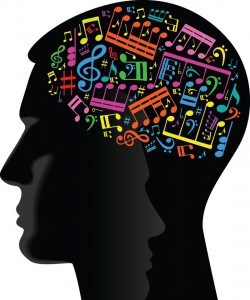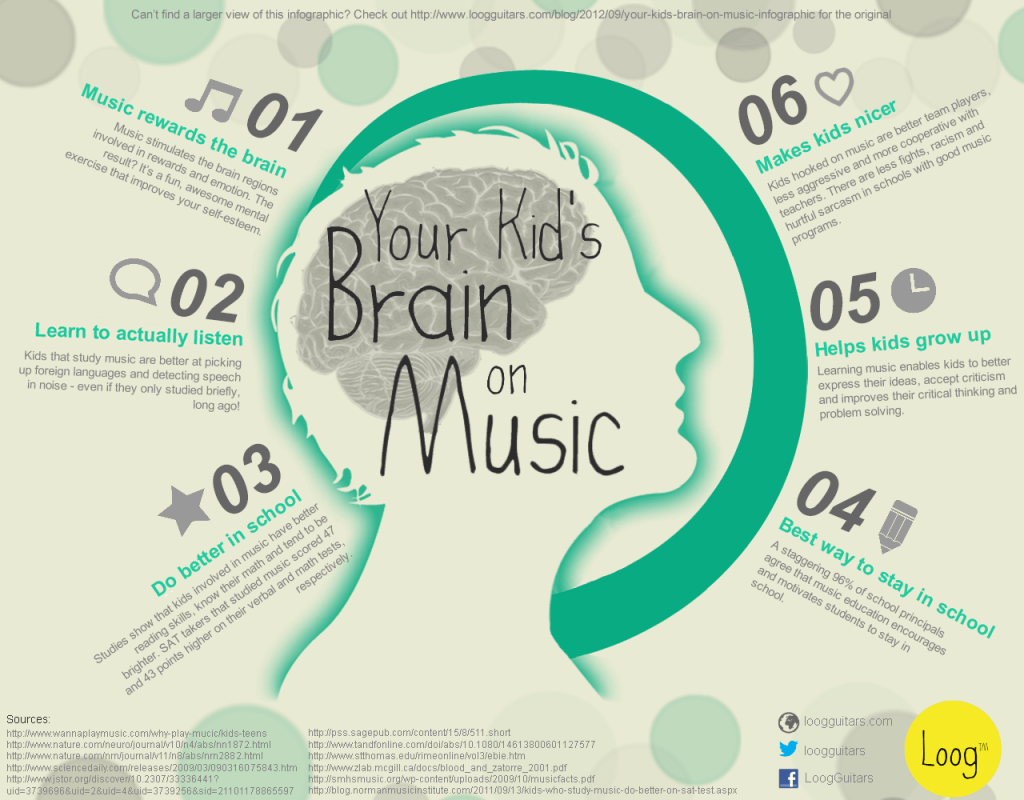Apart from being the entertainment staple for most of the humans, music rewires the brain is a medicine with time-tested effectiveness to back its reputation. For years, rock music has been known to evoke thoughts of power and vision in the brains of people listening to it. 21st-century studies have explored and documented the positive influence of music on rewiring the brain.
In its 2015 report ‘Action in Perception’, a team from the University of Jyväskylä in Finland has detailed how practicing an instrument can help make a person better at communication, creativity, planning, and listening.
In 2012, an article published in the Journal of Consumer Research explored the positive effects of listening to music on creative cognition.
Let’s learn more about exactly music interacts, enhances, and strengthens the brain.

A Sense of Power
Music’s power to impart a sense of control and power to the listener has been documented in research studies. Queen’s ‘We Will Rock You’, for instance, is an instant dose of vigor and power to a listener. Apart from a sense of being in a position of control, music works in amazing ways with your brain, leading to at least 2 kinds of thoughts:
- Eliciting higher levels of abstract thinking
- Helping you think beyond the ordinary, and see the ‘bigger picture’
All these traits are associated with the virtue of ‘intellectual power’. So the next time you feel a little out of control, it’s time to play some of the best rock and power beat songs.

A Boost to Concentration
Baroque and classical music are renowned across the globe as the trusted accomplices of all kinds of people. These genres of music have an inherent power to help the listener focus better on the task at hand, amplify the brain’s ability to memorize things and recall previously memorized things, and aid in concentration. Apart from classical and baroque music, soft instrumental and ambient music is also known to lend a sense of relaxed alertness to the listener.
So, if you’re yet to be initiated to Vivaldi and Mozart, you might want to give your Kenny G collection a try to be able to concentrate better. Songs with lyrics, however, tend to compete for the attention of the mind, and not the best options when you are involved in a task that needs the undivided attention of your mind.

Music for Overcoming Stress
Long periods of stress and anxiety can wreak havoc with the neural networks of the brain, can severely impair the immune system, and kill brain cells. This is where de-stressing music genres come to the rescue, by lowering the stress-causing hormone cortisol, and increasing the ‘feel good’ hormone called dopamine. By balancing both kinds of neurotransmitters, music helps your brain remain sane, and helps you remain emotionally stable and de-stressed.
Classic Rock is a favorite when it comes to genres that help people relax and de-stress. For some, samba music can be a source of relaxation, as well as being energized. Reggae has an inimitable quality of being able to uplift the listener emotionally. On similar lines, pop music is almost everyone’s go-to genre when it comes to enjoying a sense of well-being and joy. It’s all about being aware of what kind of genre of music helps you de-stress, and being smart enough to plug into the same when the need arrives.
Wholesome Workout for the Brain
For many centuries, it has been believed that intelligence and creativity were qualities that people were born with and not something that could be taught to them. However, music has flayed the myth black and blue and is now a potent tool to catalyze creativity and intelligence. Music works just like the many renowned whole brain learning exercises, and thinking activities.
Music naturally involves the creative right portion of the human brain as a response to the thoughtful lyrics and masterful composition of the melody. Also, music activates the logically inclined left side of the brain to understand the rhythm of the song. This way, listening to music is nothing short of a cross-fit session for your brain.
Music – The Thinker’s Secret Formula to Heightened Intelligence
Did you know that the limbic system, which is the emotional epicenter of the human brain, is activated when you listen to music? This limbic system is just like a switch that governs the brain’s ability to learn and stop learning. Also, the limbic system is connected to the prefrontal cortex of the brain, where high-level thinking, strategic decision making, and executive planning take place. No wonder, music is the go-to medicine for most ‘thinking’ individuals.
Featured Image: Image Credit
This is what a music concert for dogs sounds like https://t.co/dgnjiDnv0N pic.twitter.com/ARlZ3601Bv
— Mashable (@mashable) January 6, 2016
Related Articles:
Network Science and the Effects of Music Preference on Functional Brain Connectivity: From Beethoven to Eminem
Most people choose to listen to music that they prefer or ‘like’ such as classical, country or rock. Previous research has focused on how different characteristics of music (i.e., classical versus country) affect the brain. Yet, when listening to preferred music—regardless of the type—people report they often experience personal thoughts and memories. To date, understanding how this occurs in the brain has remained elusive. Using network science methods, we evaluated differences in functional brain connectivity when individuals listened to complete songs. We show that a circuit important for internally-focused thoughts, known as the default mode network, was most connected when listening to preferred music. Via Nature
6 Surprising Effects of Music on the Brain
Every time we listen to music, amazing neurological processes are taking place behind the scenes. Research from around the world has revealed a wide range of positive effects that music has on the brain—from increased creativity and decision making to better comprehension and more positive feelings. And that’s not all—different types of music can affect us in different ways. Get your iPod ready, and read on to find out how.
Happy Music Makes Us See People In A More Positive Light
Research from the University of London’s Department of Psychology found that listening to happy music can make us see people’s faces in a positive light – even if they’re wearing a blank facial expression. Via Happify
SCIENCE REVEALS THE EFFECT PARKWAY DRIVE’S MUSIC HAS ON YOUR BRAIN
Next time you’re looking to have a quiet, relaxed night in, forget the scented candles and the bubble bath and chuck on some Parkway Drive instead. At least, that’s what a new new study on the effects of “extreme music” seems to suggest.
The study, published in the academic journal Frontiers In Human Neuroscience and conducted by a group of researchers from the University of Queensland, examined the effects of heavy music on the brain, and they’re not talking about head-banging.
According to the researchers involved in the study, the effects of heavy music on a typical listener after they’ve been angered or experienced anxiety are similar to that of a “warm hug”. Via Tone Deaf

